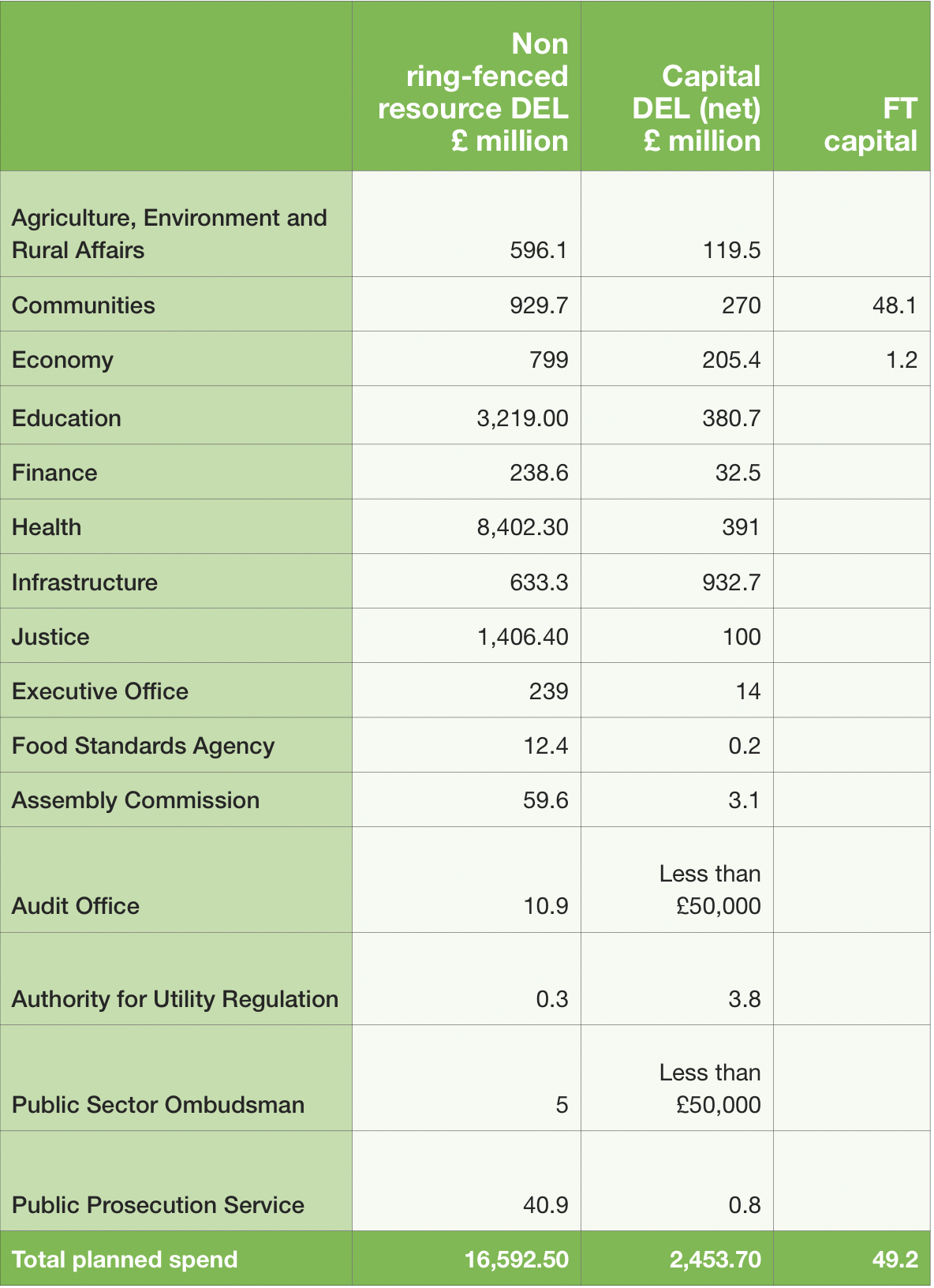Funding challenges despite Executive draft Budget agreement

The draft Budget, currently out for consultation, shows that Northern Ireland’s funding challenges are set to continue over the next year.
The continued reliance on earmarked funding, totalling £847.5 million, has increased slightly from 2024/25 levels but remains a structural constraint on departmental autonomy.
High-priority sectors such as agriculture (£332.5 million) and justice (funds for paramilitary crime initiatives) dominate these allocations, leaving departments with little flexibility to address new or emerging needs.
In comparison, the 2024/25 Budget exhibited a similar earmarked structure but included fewer commitments tied to cross-departmental initiatives.
The 2025/26 addition of a £50 million allocation for the Childcare Strategy and smaller commitments, such as £7 million for skills interventions, are noteworthy new commitments, but are significantly short of addressing broad societal demand in Northern Ireland.
While total departmental allocations in resource or the departmental expenditure limit (DEL) have grown from £14.4 billion in 2024/25 to £15.7 billion in 2025/26 (an 8.5 per cent increase), a closer look reveals mixed outcomes:
• Health: The health budget increased by 8.7 per cent (£7.7 billion to £8.4 billion), consistent with its priority status. However, much of this increase appears earmarked for legacy commitments, such as addressing waiting lists and maintaining service levels, rather than transformative reforms.
• Education: A 9.4 per cent increase (from £2.87 billion to £3.22 billion) underscores the growing pressures on this sector. Yet, the allocation fails to directly address critical areas like teacher shortages and infrastructure renewal, raising questions about the efficacy of this additional funding.
• Infrastructure: The Department’s 13.2 per cent increase in resource DEL (RDEL) (from £559.5 million to £633.3 million) reflects growing demand for transport and water services. However, the allocation still falls short of addressing long-term infrastructure deficits, especially given the department’s reliance on external borrowing.
Capital funding trends
Capital allocations have risen from £2.1 billion in 2024/25 to £2.45 billion in 2025/26, driven in part by external funding and borrowing. This includes:
• £225.7 million from the Reinvestment and Reform Initiative (RRI), compared to £200 million in 2024/25.
• £87 million from the Irish Government for the A5 project, highlighting its continued commitment to cross-border collaboration.
Despite this nominal increase, the heavy reliance on borrowing remains a critical weakness. Key capital investments in education (£102.8 million for the Strule Campus), health (£69.8 million for the Mother and Children’s Hospital), and infrastructure (£235.6 million for the A5 and Belfast Transport Hub) dominate the budget, limiting flexibility for other critical needs.
Revenue raising
The draft Budget proposes a 5 per cent increase in Domestic Regional Rates and a 3 per cent increase in Non-Domestic Regional Rates. This mirrors the Executive’s consistent approach in 2024/25, where modest rate adjustments aimed to balance public service funding against economic pressures. However, the reliance on rate hikes continues to underscore the absence of innovative revenue strategies.
The split between domestic and non-domestic rate rises reflects a response to ongoing pressures on businesses, particularly following National Insurance increases announced in the UK Chancellor’s Autumn Budget in late October 2024.
However, the repeated use of rate increases raises questions about the Executive’s capacity to identify alternative revenue streams, with Executive ministers having ruled out measures such as the introduction of water charges.
January Monitoring Round
Announcing the January Monitoring Round on 16 January 2025, Finance Minister Caoimhe Archibald MLA acknowledged that Executive departments “still face significant budgetary challenges”. “Demand once again outstrips funding available many times over with almost six times as many bids for day-to-day funding and three times as many bids for capital,” she said.
£16.9 million in resource DEL and £53.6 million capital DEL funding was allocated as part of the monitoring round as follows:
• Department for Communities: £4.5 million capital
• Department for the Economy: £2.3 million resource and £5.4 million capital
• Department of Education: £1.5 million resource and £12.5 million capital
• Department of Finance: £0.2 million resource
• Department of Health: £7.3 million resource and £13.5 million capital
• Department for Infrastructure: £5.2 million resource and £17.6 million capital
• Department of Justice: £0.1 million resource
• Public Prosecution Service: £0.1 million resource
Next steps
The consultation for the draft Budget is open for submissions until 13 March 2025, with final agreement expected to take place by May.
Minister Archibald says: “Continued work on budget sustainability and a Budget Improvement Plan will focus on developing long term plans for departments and putting in place the building blocks for fiscal sustainability. We must keep a firm and sustained focus on transforming our public services if the Executive is to put its finances on a sustainable footing.
“We must work together to do what matters most and that is why I am encouraging people to get involved in the draft Budget consultation and have their say on how to prioritise the finite funding available to us.”






